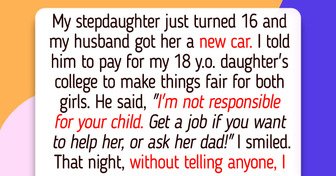12 Chilling Secrets That Shattered People’s Trust Forever

Air travel often brings together strangers in tight quarters, where tensions can rise as quickly as the plane itself. One of our readers recently described an unusual encounter on a crowded holiday flight—raising important questions about how we manage individual comfort versus collective responsibility while suspended thousands of feet in the sky.
I was genuinely excited about flying out to see my family—it had been too long, and I was counting down the days.
When I booked my ticket, I chose an aisle seat and even paid extra for it. As I waited for takeoff, a woman approached me. She was pregnant. She asked if I’d mind switching seats. I started to nod until I saw where she wanted me to go.
That’s when I realized she was asking if I’d mind switching seats so she could be closer to the bathroom. I paused, unsure of how to respond. I have a special medical condition that means I sometimes need quick access to the restroom, and being on the aisle gives me that bit of security. That was the reason why I chose to pay for the aisle seat.
I completely understood her need—it was valid, and I genuinely sympathized with her. But saying yes would have put me at risk. What she didn’t know is that my choice wasn’t random or selfish. That seat was important for my health. And again, it wasn’t cheap—I had deliberately spent more to reserve it.
I felt stuck between doing what felt kind and doing what I knew was necessary for my own well-being. It’s one of those moments that still lingers in my mind, not because I made the wrong choice, but because sometimes, the right choice isn’t easy at all.
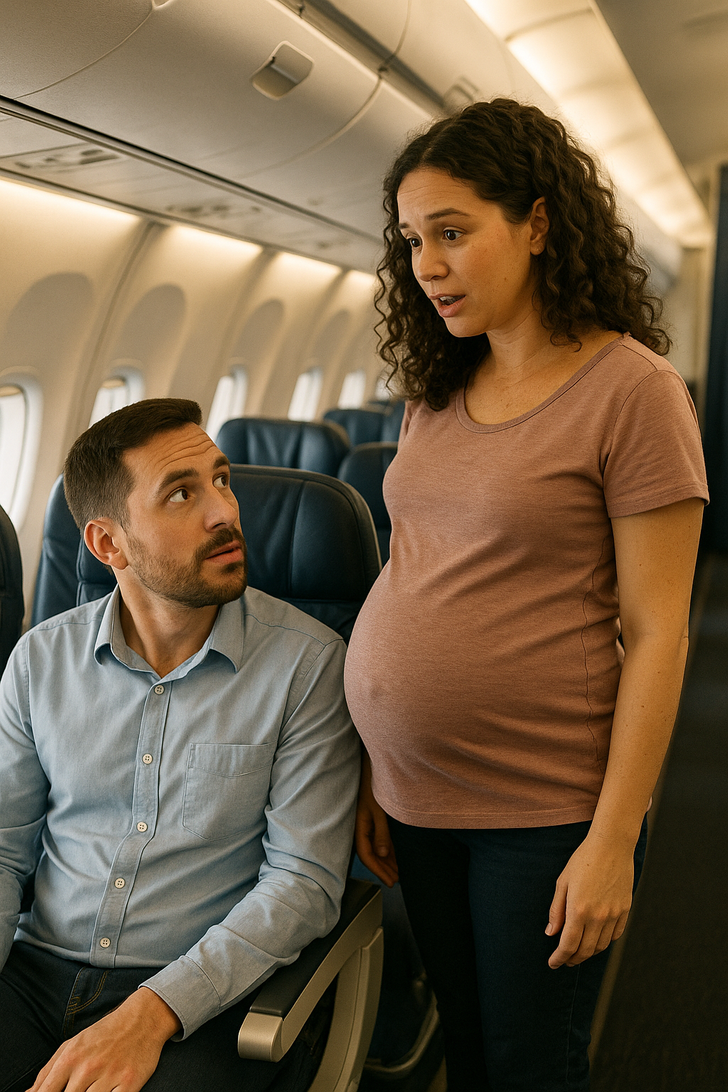
I tried to explain my situation, but the flight crew offered no real help. They chose not to get involved, and with the plane fully booked, there weren’t any other aisle seats or nearby options left. I even gently recommended that the woman speak with her doctor ahead of future trips to ensure proper arrangements, but it didn’t go anywhere.
What really stung wasn’t just the awkwardness of the situation, but the reaction from my own family afterward. They thought I should’ve just given up my seat, no questions asked. And yet, I couldn’t shake the sense that I had been cornered into choosing between fairness and forced sacrifice.
Why was it on me to solve a problem that could have—and should have—been handled through official channels? Why did the responsibility fall on my shoulders alone?
Even now, I find myself questioning it all. Was I selfish for not moving? Or was I simply protecting my own well-being in a situation where everyone else expected me to yield?
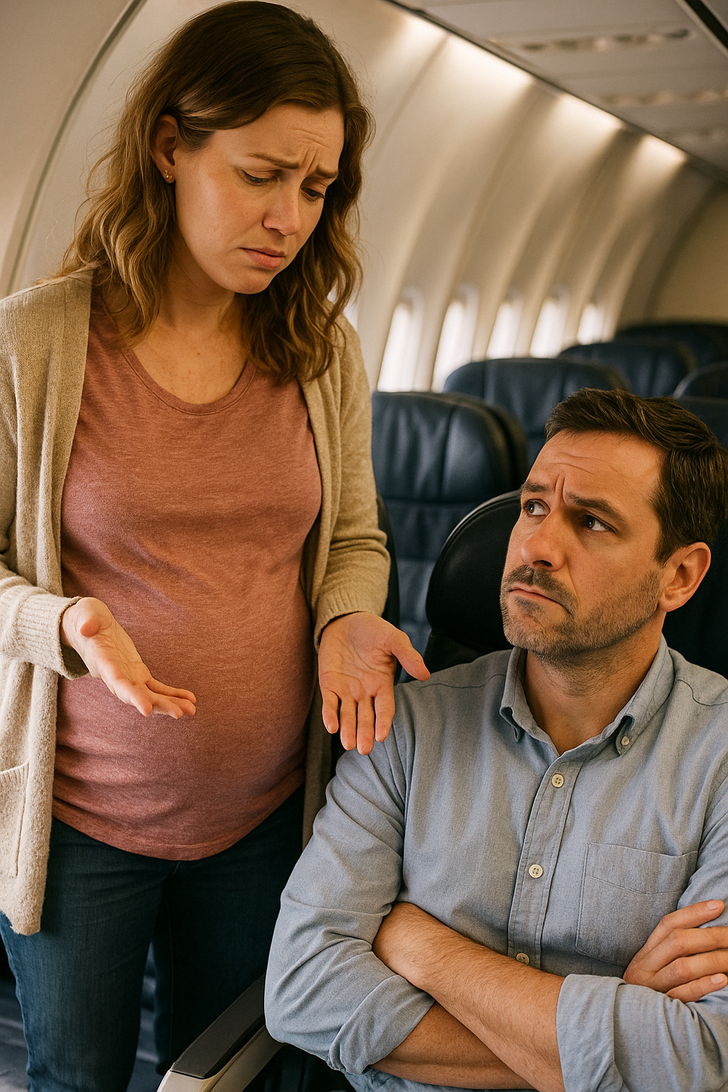
Paying extra for a specific seat on a flight isn’t always about comfort—it’s often about necessity. For some passengers, like those with medical conditions that require quick access to a restroom, an aisle seat can be essential to managing their health during travel.
That’s why in-flight requests to swap seats, even from someone in a vulnerable condition like pregnancy, can place travelers in an awkward position. While the need may be genuine, it also raises the question: could the situation have been avoided with better planning?
This scenario highlights the importance of proactive communication and thoughtful arrangements by both passengers and airlines. When travelers anticipate their needs and take steps to accommodate them in advance, it reduces the likelihood of mid-flight conflicts and ensures a more comfortable experience for everyone on board. It’s a gentle reminder that empathy should be supported by preparation, not left entirely to chance.
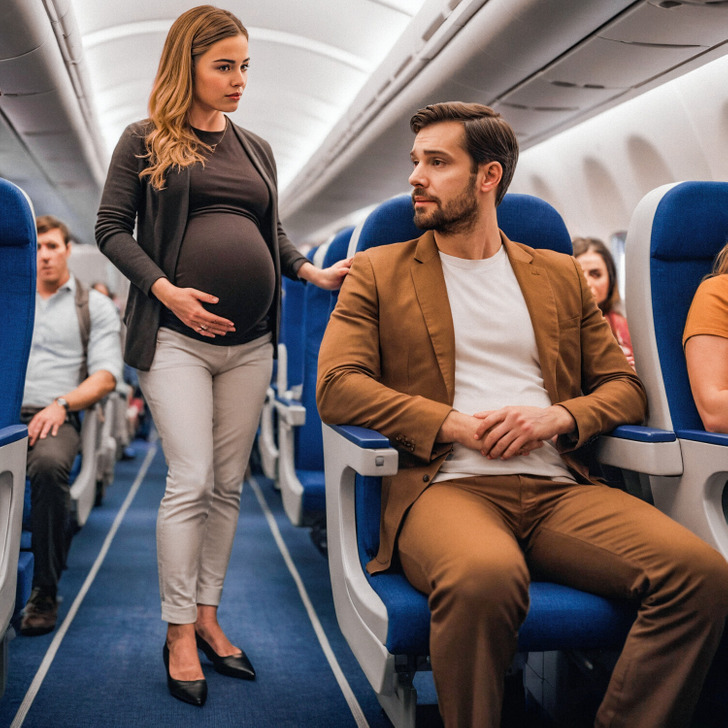
The pregnant passenger may have been in discomfort, prompting her request to switch seats. But the absence of support from airline staff only made matters worse. Without proper communication or mediation, the tension remained unresolved.
This incident brings up a larger question: when needs clash mid-flight, is there a fair way to decide whose comfort takes priority, or should all passengers be treated equally?
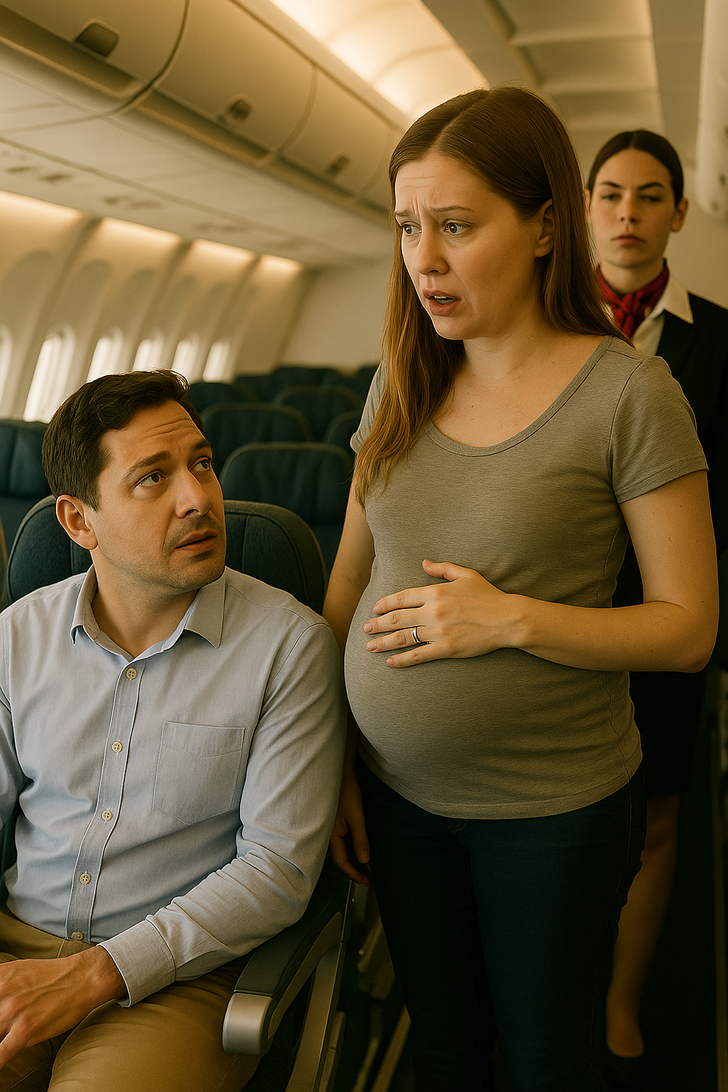
In moments of in-flight conflict, crew members are expected to help ease tensions and uphold comfort for all. Yet in this case, the flight attendant remained passive, despite clear appeals for help—leaving both passengers stuck in an unresolved standoff.
This lack of involvement reflects a broader issue: without proper guidance or intervention, disputes like these can spiral, undermining trust in airline service and revealing the need for better crew training and clearer conflict-resolution protocols.
If you were in that seat, you’d likely understand the hesitation. Paying extra for a spot you genuinely need makes it hard to just give it up. Wanting to help someone, especially a pregnant passenger, is admirable, but fairness matters too.
It’s never easy choosing between kindness and self-care. The right decision depends on the circumstances and whether other options exist. Situations like this reveal just how complicated in-flight dynamics can be—and how quickly courtesy can collide with personal boundaries.
Now we’d love to hear your thoughts—how should situations like this really be handled?
Check this article to find out how this flight attendant handled a seat swap situation.

